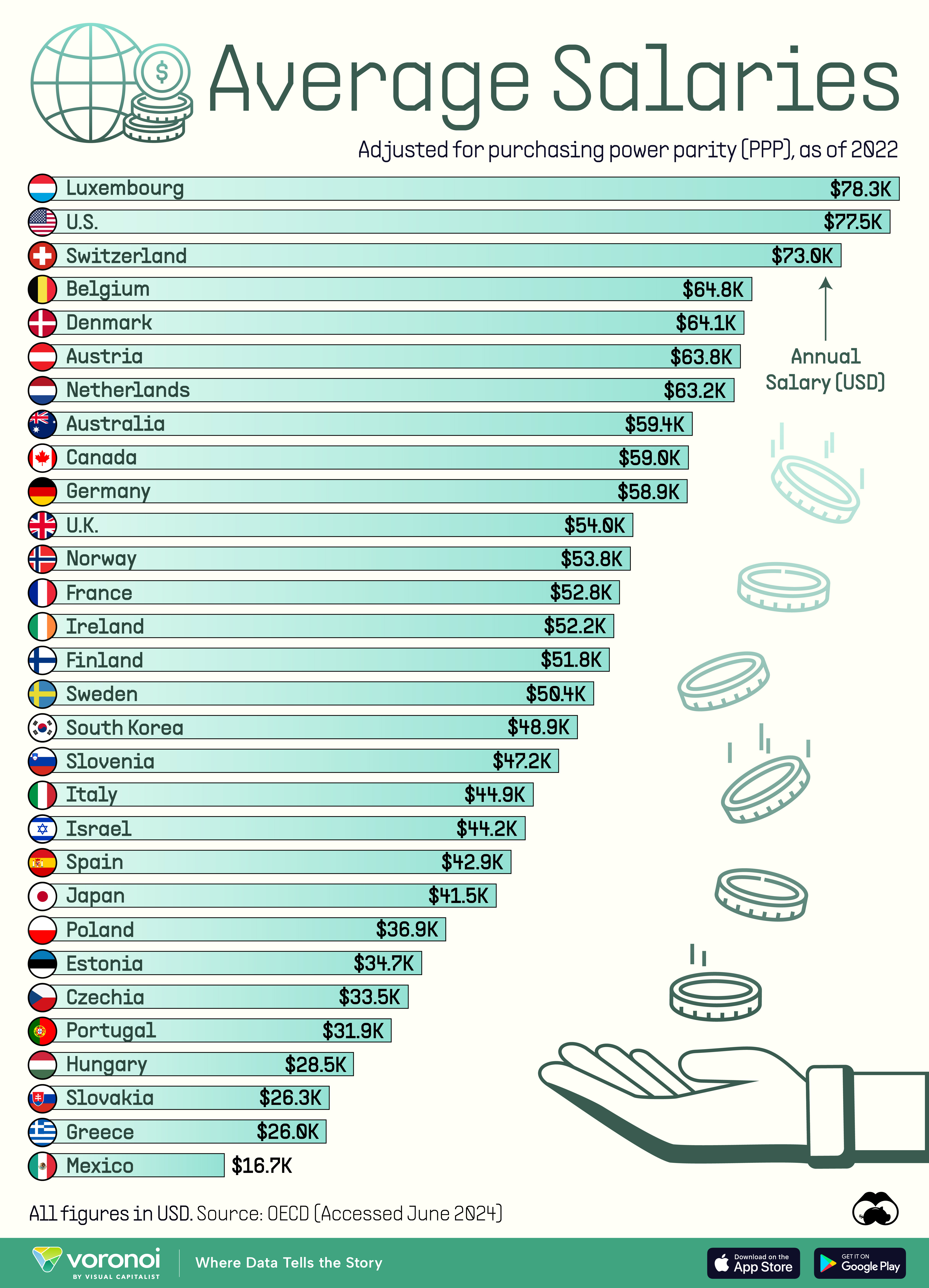OECD 30개국 국가별 연봉, 한국은 17위
국가마다 급여가 다른 이유는 경제 발전, 생활비, 노동법, 기타 다양한 요인 등 여러 가지가 있다. 이러한 변수로 인해 전 세계의 일반적인 소득 수준을 측정하기는 어려울 수 있다.
이를 염두에 두고 구매력 평가(PPP; purchasing power parity)에 맞게 조정된 OECD 30개 국가의 평균 연봉을 시각화했다. 즉, 나열된 값은 국가 간 생활비 및 인플레이션의 차이를 고려한 것이다.
See this visualization first on the Voronoi app.
See this visualization first on the Voronoi app.
Ranked: Average Annual Salaries by Country
This was originally posted on our Voronoi app. Download the app for free on iOS or Android and discover incredible data-driven charts from a variety of trusted sources.
There are many reasons for why salaries vary between countries: economic development, cost of living, labor laws, and a variety of other factors. Because of these variables, it can be difficult to gauge the general level of income around the world.
With this in mind, we’ve visualized the average annual salaries of 30 OECD countries, adjusted for purchasing power parity (PPP). This means that the values listed have taken into account the differences in cost of living and inflation between countries.
Data and Key Takeaways
This data was sourced from the OECD (Organisation for Economic Co-operation and Development), an international organization that promotes policies to improve economic and social well-being. It has 38 member countries, though in this instance, data for all of them was not available.
All figures are as of 2022.
From this dataset we can see that Luxembourg, the U.S., and Switzerland offer the highest average annual salaries.
All three of these countries are highly developed economies with well-established service sectors, which typically lead to more high-paying jobs. The cost of living in these countries is also relatively high, necessitating higher wages to maintain a standard quality of life.
At the other end of this ranking, Mexico and Greece have the lowest average salaries. In Mexico’s case, the country’s economy has a large portion of lower-wage jobs, particularly in agriculture and manufacturing.
Greece, on the other hand, has struggled with consistently high unemployment since the 2008 global financial crisis. This puts downward pressure on wages because there is a surplus of labor.

 Luxembourg
Luxembourg U.S.
U.S. Switzerland
Switzerland Belgium
Belgium Denmark
Denmark Austria
Austria Netherlands
Netherlands Australia
Australia Canada
Canada Germany
Germany UK
UK Norway
Norway France
France Ireland
Ireland Finland
Finland
댓글 없음:
댓글 쓰기